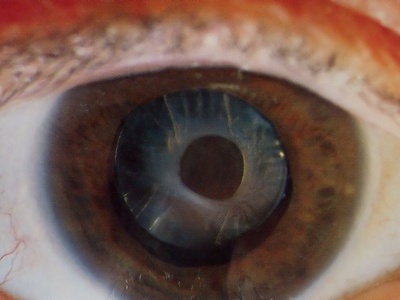
• Woman fights off virus without medication
SCIENTISTS have made three major breakthroughs with the restoration of the sight of an 80-year-old man with bionic eye and that cocktail of drugs is 93 per cent successful in preventing Human Immuno-deficiency Virus (HIV)/Acquired Immune Deficiency Syndrome (AIDS) transmission through sex as an 18-year-old woman fights off virus without medication.
The DailyMail online United Kingdom (UK) yesterday reported that a revolutionary bionic eye implant has restored the sight of a British man.
Mr. Ray Flynn, 80, from Audenshaw, Manchester, has become the first patient in the world to receive an artificial retina for dry age-related macular degeneration (AMD), the most common cause of eyesight problems in the UK.
Hundreds of thousands of those with the affliction could benefit from the technology, which was previously used only for those with a rare eyesight condition.
Surgeons at Manchester Royal Eye Hospital implanted a chip at the back of Flynn’s eye in a four-hour procedure last month.
The retired factory supervisor can now make out shapes with his eyes closed – proof that the system is working.
Since he was diagnosed with AMD eight years ago, Flynn’s eyesight has progressively deteriorated, until he could only see clearly out of the corners of his eyes.
Now the £80,000 procedure has given him back his central vision, allowing him to read a newspaper without a magnifying glass for the first time in years.
Meanwhile, researchers claim that a cocktail of drugs can stop HIV being transmitted through sexual intercourse.
A combination of drugs known as antiretroviral therapy (ART) stops HIV from being passed on from infected men and women to their uninfected partners, the results of a landmark study show.
ART consists of the combination of at least three antiretroviral (ARV) drugs to suppress the HIV virus and stop the progression of the disease.
Researchers found the drugs were able to reduce the transmission of the virus by 93 per cent in couples assigned to ART treatment.
The ‘viral load’, the amount of HIV in the blood, was also suppressed by the drugs. Reducing the viral load lowers the risk of the person becoming ill because of HIV.
Also, doctors, yesterday, reported that an 18-year-old French girl born with the AIDS virus has had her infection under control and nearly undetectable despite stopping treatment 12 years ago – an unprecedented remission.
The teenager might have some form of natural resistance to HIV that hasn’t yet been discovered. But her case revives hope that early, aggressive treatment can limit how strongly the virus takes hold, and perhaps in rare cases, let people control it without lifelong drugs.
A few years ago, doctors reported a similar case: a Mississippi girl who kept HIV in check for 27 months without treatment. But then her virus rebounded, dashing hopes that early treatment might have cured her.
At least a dozen adults have had remissions for a median of 10 years after stopping HIV medicines, but the new French case is said to be the first long-lasting one that started in childhood.
The case was described Monday at an International AIDS Society conference in Vancouver, by Dr. Asier Saez-Cirion of the Pasteur Institute in Paris. The teenager lives in the Paris area and her identity was not revealed.
“This is an exciting story,” but it is unknown if the remission will last, said Francoise Barre-Sinoussi, a scientist at the Pasteur Institute and a co-discoverer of HIV.



